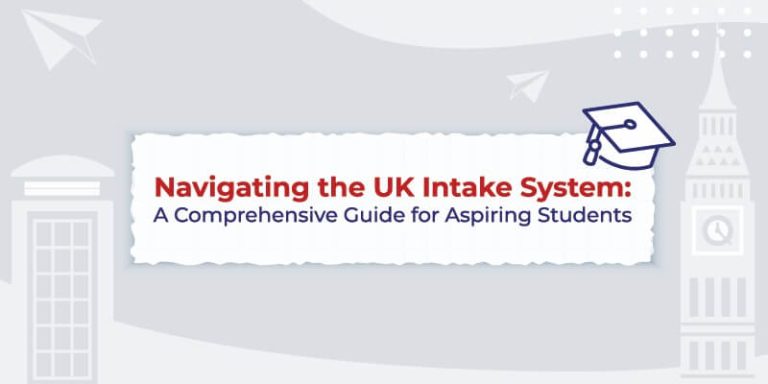Study Law in UK: Make Your Legal Dreams a Reality
The UK has long been a preferred destination for aspiring lawyers due to its world-class legal education, esteemed universities, and global career prospects. A law degree from a UK university carries international recognition and provides students with a solid foundation in legal principles, critical thinking, and practical application.
Whether you wish to practice law in the UK or use your degree internationally, studying law in the UK can be a game-changer for your career.
Why Choose the UK for Law Studies?
The UK boasts some of the world’s oldest and most esteemed law schools. Studying law here offers several benefits:
- Globally Recognized Degrees: UK law degrees are respected worldwide, providing access to a wide range of legal career opportunities.
- Diverse Specializations: Students can choose from a variety of legal specializations such as international law, human rights law, corporate law, and criminal law.
- Practical Learning: Universities emphasize practical training through moot courts, internships, and pro bono opportunities.
- Pathway to Becoming a Solicitor or Barrister: The UK legal system provides clear routes for becoming a practicing lawyer, whether as a solicitor or a barrister.
- Influence on Global Legal Systems: UK law has significantly shaped the legal frameworks of many countries, particularly those in the Commonwealth, making a UK law degree highly relevant in international legal practice.
Cost of Studying Law in the UK
The cost of a law degree in the UK varies depending on the university and level of study. Here’s a general breakdown:
- LLB (Undergraduate Law Degree): £15,000 – £30,000 per year for international students.
- LLM (Master of Laws): £15,000 – £40,000 per year, depending on specialization and institution.
- Bar Training Course (BTC): £12,000 – £19,000 for aspiring barristers.
- Solicitors Qualifying Examination (SQE): Exam fees range from £3,000 – £4,000, excluding preparation courses.
Living Expenses
In addition to tuition, students must budget for:
- Accommodation: £5,000 – £10,000 per year.
- Food and Utilities: £2,000 – £4,000 annually.
- Books and Materials: Around £500 per year.
· Miscellaneous Costs: Travel, social activities, and personal expenses add up to another £2,000 – £4,000 per year.
Top Law Universities in the UK
Several UK universities consistently rank among the best law schools in the world. The following are the top institutions for legal studies:
- University of Oxford: Offers an intellectually rigorous program with a focus on legal theory and analysis.
- University of Cambridge: Known for its historical significance and exceptional faculty.
- London School of Economics (LSE): Specializes in commercial and international law.
- University College London (UCL): Provides a modern and interdisciplinary approach to law.
- King’s College London: Offers strong links with the legal profession and an excellent reputation for research.
- University of South Wales: Law at USW is top in Wales for Teaching Quality (The Times and The Sunday Times Good University Guide 2025)
Scholarship Opportunities for International Students
Pursuing a law degree in the UK can be expensive, but scholarships and financial aid options are available:
Government-Funded Scholarships
- Chevening Scholarship: Covers tuition, living expenses, and travel costs for exceptional students from eligible countries.
- Commonwealth Scholarships: Offers financial aid for students from Commonwealth nations.
University-Specific Scholarships
- Many universities offer merit-based and need-based scholarships, such as the UCL Laws Scholarship or LSE Master’s Awards.
Private and External Funding
- Organizations like the British Council and law firms also offer financial aid.
- Student Loans: Some countries provide government-backed loans for studying abroad.
Admission Requirements for Law Degrees in the UK
To enroll in a law degree in the UK, students must meet specific entry requirements:
- LLB Admission Requirements:
o High school qualifications (A-levels or equivalent)
o LNAT (Law National Aptitude Test) for some universities
o English language proficiency (IELTS 6.5 – 7.5 or TOEFL equivalent)
- LLM Admission Requirements:
o An undergraduate degree in law or a related field
o Strong academic transcripts and references
o Work experience may be required for some specialized programs
The application process is typically handled through UCAS for undergraduate programs and directly through the university for postgraduate courses.
Career Opportunities After a Law Degree in the UK
Graduating with a law degree from the UK opens multiple career pathways:
- Solicitor: Requires completing the Solicitors Qualifying Examination (SQE) and a period of work experience.
- Barrister: Involves passing the Bar Training Course (BTC) and a pupillage (apprenticeship).
- Corporate Legal Advisor: Opportunities in law firms, banks, and multinational companies.
- Academia & Research: Teaching and research roles at universities or think tanks.
- Alternative Careers: Compliance officers, legal consultants, or roles in international organizations such as the UN or NGOs.
Conclusion
Studying law in the UK is a prestigious and rewarding choice for international students. With top-tier universities, specialized courses, and excellent career opportunities, UK law degrees provide a solid foundation for success.
However, prospective students must plan carefully regarding finances, scholarships, and career paths. By making informed choices and preparing thoroughly, you can ensure a smooth journey toward a fulfilling legal career.
Frequently Asked Questions (FAQs)
1. How long does it take to complete a law degree in the UK?
An LLB degree takes three years in England, Wales, and Northern Ireland, while in Scotland, it takes four years. An LLM typically takes one year for full-time students.
2. Can international students practice law in the UK after graduation?
Yes, but they must complete additional steps such as the SQE (for solicitors) or BTC (for barristers). Visa and work requirements also apply.
3. What are the differences between an LLB and an LLM?
An LLB is an undergraduate degree that provides foundational legal knowledge, while an LLM is a postgraduate degree allowing specialization in specific legal fields.
4. Is it possible to work while studying law in the UK?
Yes, students on a Student Visa can work up to 20 hours per week during term time and full-time during holidays.
5. What are the visa requirements for studying law in the UK?
Students need a Student Visa (Tier 4), proof of funds, an acceptance letter from a university, and English proficiency certification.
6. What are the best specializations for law students in the UK?
Popular specializations include Corporate Law, Human Rights Law, International Law, Criminal Law, and Environmental Law.
7. How competitive is law school admission in the UK?
Admission to top universities is highly competitive. Strong academic results, a compelling personal statement, and LNAT scores (for some universities) are crucial.







